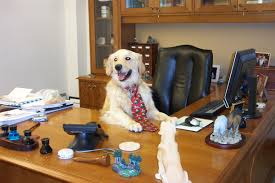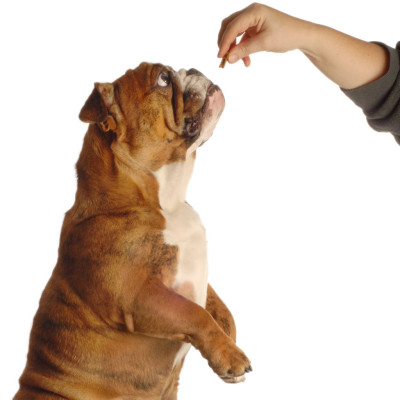
According to recent American Kennel Club statistics, the most popular breed of dogs in the United States is the Labrador Retriever. Twelve out of the top twenty most popular breeds are toy, or small breed dogs. Big dogs certainly have their fans, but little dogs have their own unique appeal. They’re portable, don’t take up a lot of room, don’t eat as much, and are much easier to sneak in places.
Small dogs have acquired an unfavorable and unfair reputation for lacking manners. Andrew and I appeared on ‘Great American Dog’, many people marveled at how obedient he was, and how he often outshined the bigger dogs. Well, I am here to say that Andrew was not an anomaly!
Small dog parents only need to put in the necessary time and attention to training so that their little friends can be just as behaved, socialized and obedient as their bigger counterparts.
Create a social butterfly:
Far too many small dog parents keep their petite pet out of critical socialization period, when a dog forms their opinion of the world around them. Once a small dog or puppy has the proper immunizations, it’s time to get them out and about to meet a variety of people. They need to spend time in many different environments, to learn how to play and interact with other puppies and friendly older dogs. Just remember, all interactions must be positive and enjoyable for the puppy.
Walk a mile in their paws:
Have you ever imagined how big the world must look to you pint-sized friend? More than likely, it looks pretty scary. Every once in a while, get on the floor and take a look at the environment from your dog’s perspective. You might even find some potential hazards you never thought of.
Don’t segregate or discriminate:
Don’t treat big dogs like the bogey man. In fact, go ahead and enroll them in a reputable obedience class with dogs of all sizes, taught by an experienced instructor. It’s only natural to be a little protective of your petite pooch, but dogs are very perceptive, and can sense when we’re uneasy. If your pup sees that’s you’re okay with bigger dogs, chances are they’ll be okay with them too.
Form a partnership/Give them a job:
Most dogs, even the tiniest ones, were bred to assist man or perform most type of job or duty. Training your dog to perform certain duties, or allowing them to participate in dog sports and activities, will not only build their confidence, it will also give them a sense of purpose and accomplishment.

Remember your little dog is a dog, not a tiny human:
Even though we love our dogs like one of the family, and certainly one of the best thing about little dogs is they look perpetual puppies their entire lives, we do them a tremendous disservice by attributing human characteristics to them and imposing human expectations that they can’t possibly ever live up to. Have realistic, fair expectations and remember that mistakes will happen – they’re dogs!
For the Best that Pet Lifestyle and Animal Welfare has to offer follow Wendy and Lucky Diamond on Facebook, Twitter, and right here at AnimalFair.com!


